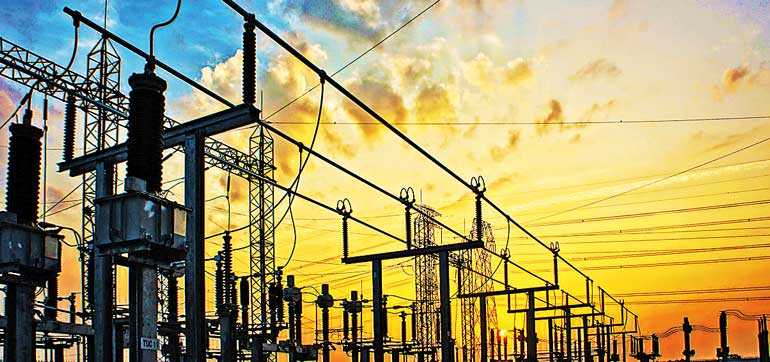Tuesday Feb 24, 2026
Tuesday Feb 24, 2026
Saturday, 11 May 2019 00:01 - - {{hitsCtrl.values.hits}}

By Chathuri Dissanayake
The report by the Technical Evaluation Committee on 200 MW barge mounted power ship proposed to be set up in Kerawalapitiya has said it was not technically feasible to connect the supply to the existing transmission line.
“The report says that 70% cannot be connected to the line, only about 25%-30% can be connected,” a top source privy to the report submitted to Cabinet Appointed Negotiating Committee (CANC) of the report told the Daily FT. The technical evaluation was done after the Cabinet paper seeking approval for the procurement of 200 MW of power was approved on 30 April. A proposal given by the Turkey Company Karatdeniz on 12 April for two 200 MW barge-mounted power ships gives the condition Sri Lankan Government is required to buy 70% of the production. According to the feasibility study report, done by a committee made up of Ceylon Electricity Board (CEB) officials, the Government can buy 70% only if there is a breakdown in one of the existing plants connected to the transmission line.
Priced at Rs. 24.98, the Cabinet on 30 April approved the proposal to procure 200 MW power from a barge stationed in Kerawalapitiya for a six-month period following a Cabinet paper presented by Power and Energy Minister Ravi Karunanayake. A second Cabinet paper presented by the Minister which is yet to be approved proposed the price to be increased to Rs. 26.20.
However the five-member subcommittee headed by President Maithripala Sirisena opposed the proposal and ordered on the CEB to “calculate the true price”, of the purchase as only 25%-30% can be procured due to transmission limitations.
The subcommittee also includes Karunanayake, Megapolis and Western Development Minister Patali Champika Ranawaka, State Minister of Finance Eran Wickramaratne and Non-Cabinet Economic Reforms and Public Distribution Minister Dr. Harsha de Silva.
Earlier a three-member committee comprising Karunanayake, Dr. de Silva and Highways and Road Development and Petroleum Resources Development Minister Kabir Hashim also rejected inclusion of the barge.
The report outlining several steps to be taken immediately also included procurement of 200 MW of power from barge-mounted power ship for two years, but was opposed by Dr. de Silva who included a footnote saying the procumbent is only recommended if competitive bidding process is followed for six months. He also notes that there have been additions to the report which was not agreed upon by the committee.
Karunanayake made the proposal to procure power from two 200 MW barges for a period of six months based on the proposal made by the Turkish company. The company came recommended by the Turkish Ambassador Tunca Ozcuhadar who wrote to the Minister on 21 February regarding the company.
The Proposal by Karatdeniz dated 11 April was sent to the Ministry, which was then forwarded by the Ministry Secretary Dr. B.M.S. Batagoda to the CEB for consideration. The letter refers to a report by the CEB sent to the Ministry on the same day on the need to procure 200 MW of emergency power in addition to the 170 MW already purchased.
In March, the Ministry signed agreements with three emergency power suppliers to procure 100 MW to the grid due to power shortage brought on by the drought. This is apart from the power procurement deal struck with Asia Power and ACE Power Matara for a total of 70 MW for a one-year period.
The tender is being recommended by Karunanayake to the Cabinet without a competitive bidding process. The second Cabinet paper also seeks special approval to undertake the procurement of power from 200 MW power ship under the section 43 4 (c) (ii) of the Sri Lanka Electricity Act No. 31 of 2013 under emergency situation. Under emergency situations which does not require the Ministry to follow normal procurement process nor approval from Public Utilities Commission of Sri Lanka.
The second Cabinet paper also seeks approval to grant permission to the Turkish company to import Heavy Fuel Oil (HFO) by the power supplier. The paper seeks approval of the cabinet to direct Ministry of Highways and Road Development and Petroleum Resources Development to issue the licence to import HFO for the power ship for a six-month period.
Currently no other entity – which produces power or otherwise – has been granted licence to import HFO and CPC maintains a monopoly. Negotiations with the Ministry is still ongoing regarding to CEB paying for HFO purchases made by the three emergency power producers who signed agreements with the Ministry as well, the Petroleum Resources Development Ministry Secretary Sunil Hettiarchachi confirmed to Daily FT.
Karunanayake recommends the Cabinet of Ministers to grant approval to direct the Ministry of Finance to grant exemption on the payment of the applicable taxes for the developer to import HFO or grant the CEB to pay the relevant taxes.
CEB Engineers’ Union (CEBEU) sought the opinion of its membership on whether or not to call for PUCSL approval for the procurement. The union which has instigated trade union action on PUCSL calling for the removal of the Director General Damitha Kumarasinghe, posed the question “Are we withdrawing our TU action with PUCSL For this procurement a possible power cuts to the country”?, or “Are we accepting a procurement carried out without a proper competitive tender procedure”?
CEBEU President Saumya Kumarawadu claimed that the question does not need an answer as it is technically not feasible to connect 200 MW to the transmission line from Kerawalapitiya.
“We will maintain our trade union action, this procurement will not come to pass as it is not technically possible. That is why we say we should stick to our long term generation plan,” he said.